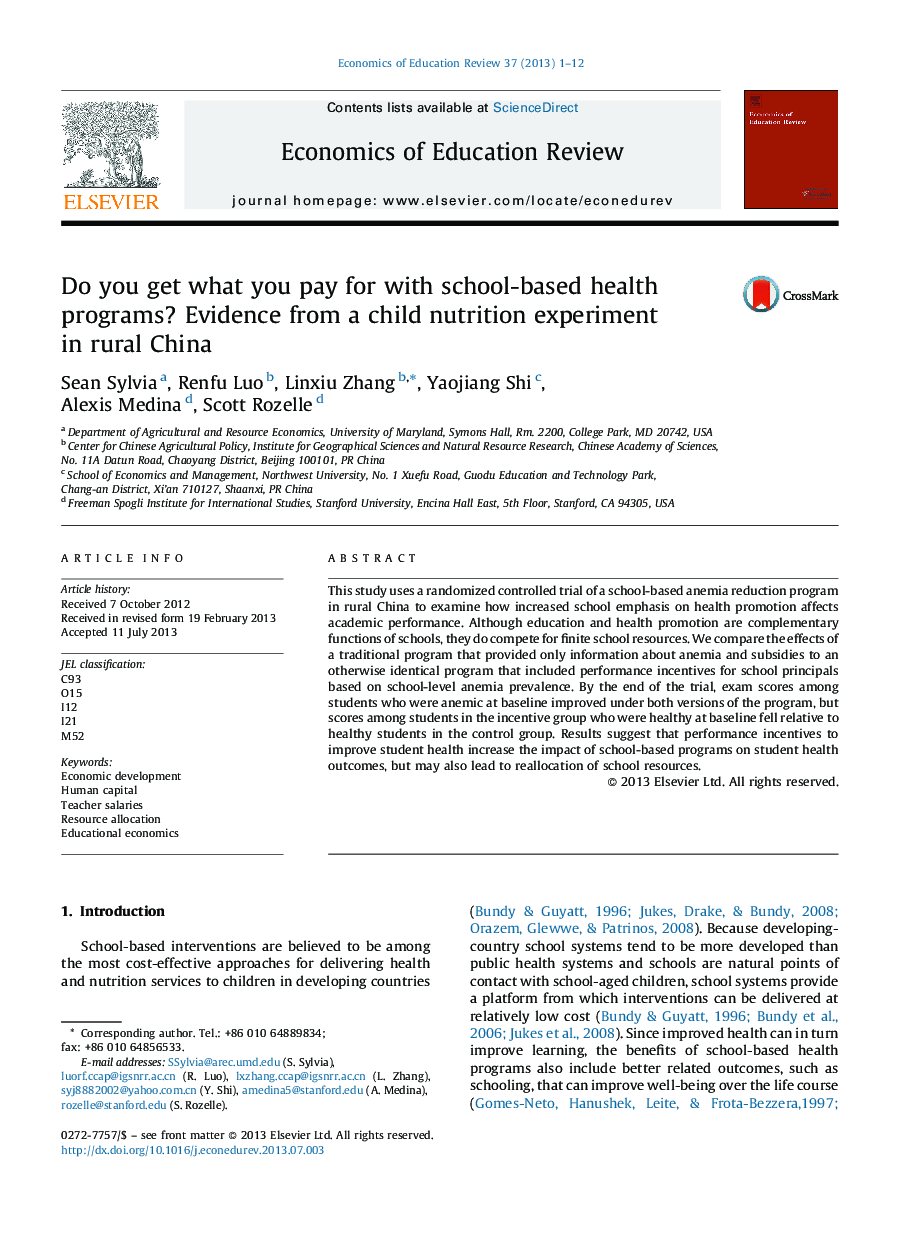| Article ID | Journal | Published Year | Pages | File Type |
|---|---|---|---|---|
| 354590 | Economics of Education Review | 2013 | 12 Pages |
•We test the effect of a school-based health program on academic performance.•We compare a traditional program to one that included health-based incentives.•Exam scores of anemic students improved under both versions.•Exam scores of healthy children fell with the addition of incentives.•Health-based incentives lead to reallocation of school resources.
This study uses a randomized controlled trial of a school-based anemia reduction program in rural China to examine how increased school emphasis on health promotion affects academic performance. Although education and health promotion are complementary functions of schools, they do compete for finite school resources. We compare the effects of a traditional program that provided only information about anemia and subsidies to an otherwise identical program that included performance incentives for school principals based on school-level anemia prevalence. By the end of the trial, exam scores among students who were anemic at baseline improved under both versions of the program, but scores among students in the incentive group who were healthy at baseline fell relative to healthy students in the control group. Results suggest that performance incentives to improve student health increase the impact of school-based programs on student health outcomes, but may also lead to reallocation of school resources.
